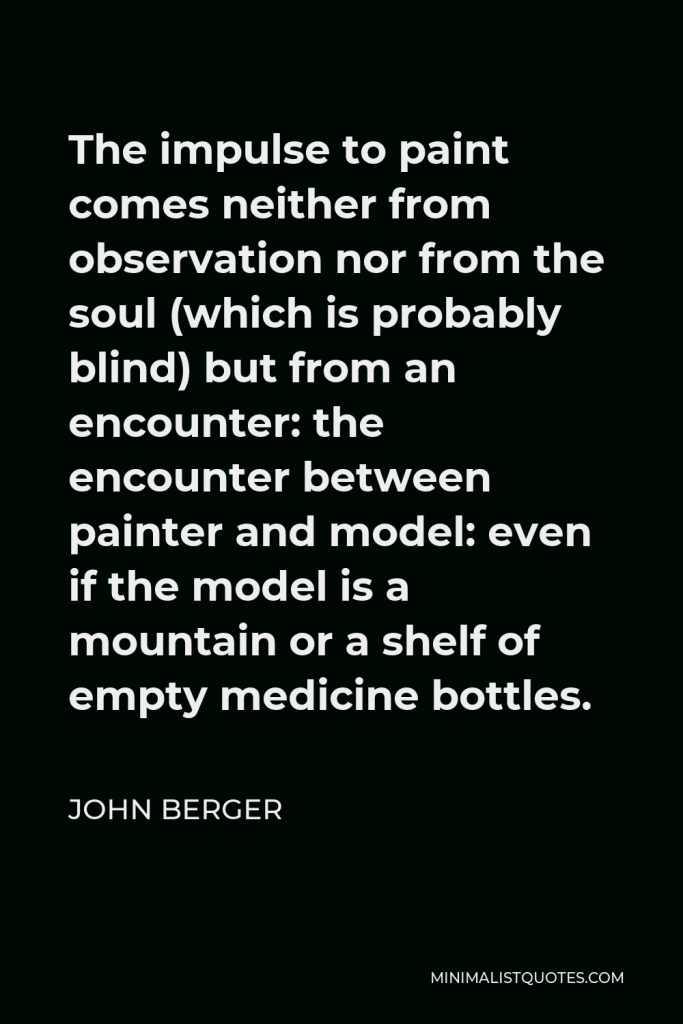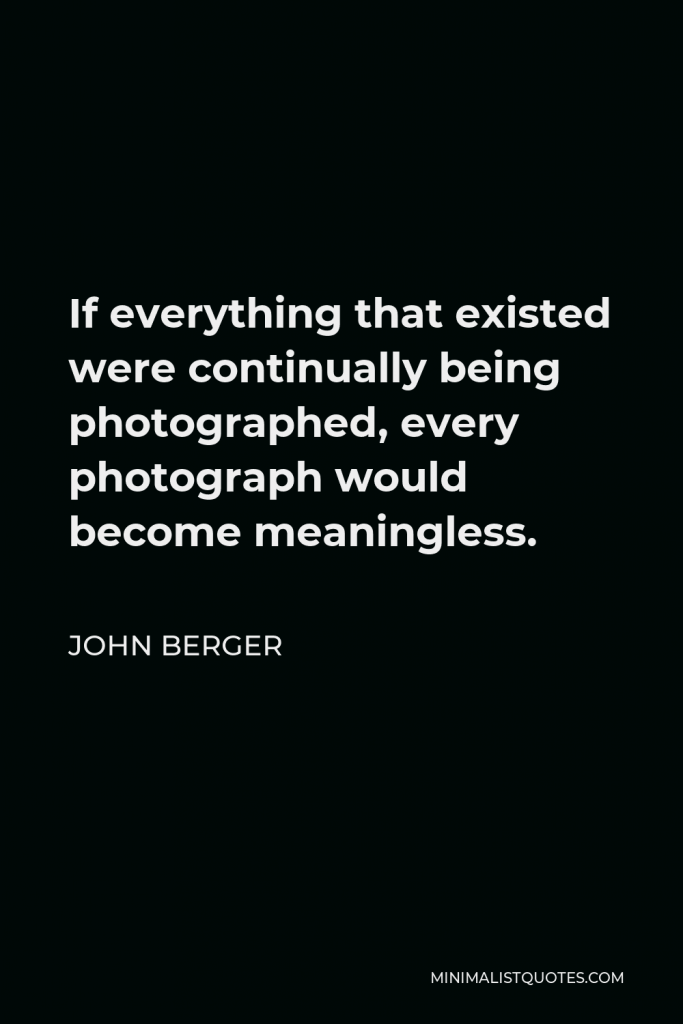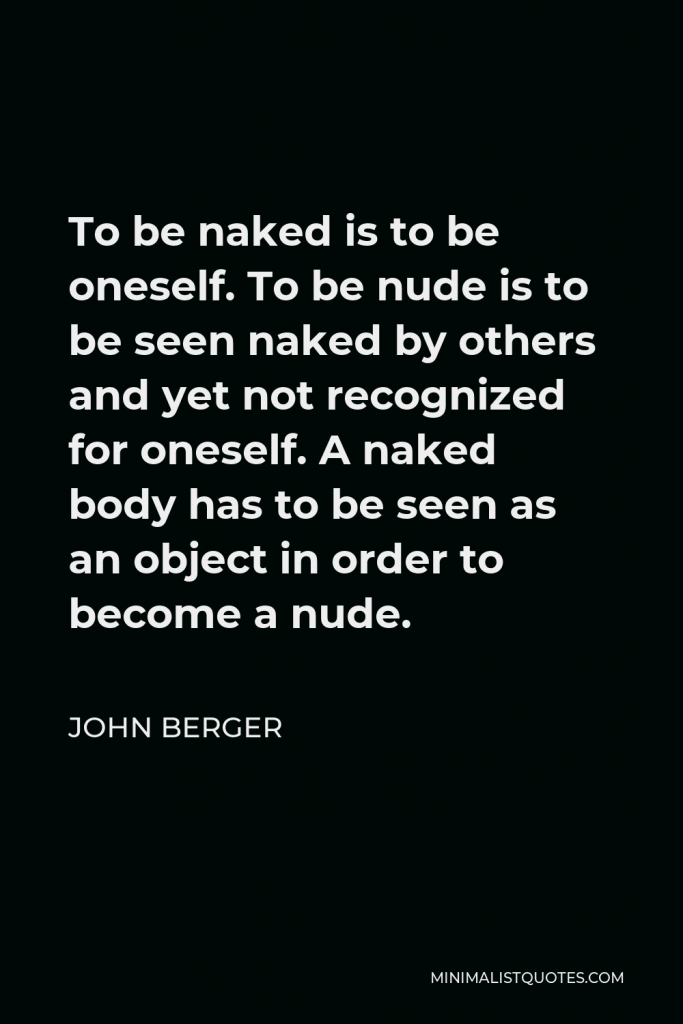History always constitutes the relation between a present and its past. Consequently fear of the present leads to mystification of the past
JOHN BERGERArt, when it functions like this, becomes a meeting-place of the invisible, the irreducible, the enduring, guts, and honor.
More John Berger Quotes
-







-







Everything became exchangeable because everything became a commodity.
JOHN BERGER -







Words are so often used in the opposite sense, as a screen of diversion. It’s the struggle towards truthfulness which is the same whether one is writing a poem, a novel or an argument.
JOHN BERGER -







Yet the first symbols were animals. What distinguished men from animals was born of their relationship with them.
JOHN BERGER -







What distinguished man from animals was the human capacity for symbolic thought, the capacity which was inseparable from the development of language in which words were not mere signals, but signifiers of something other than themselves.
JOHN BERGER -






When we read a story, we inhabit it. The covers of the book are like a roof and four walls.
JOHN BERGER -







The impulse to paint comes neither from observation nor from the soul (which is probably blind) but from an encounter: the encounter between painter and model: even if the model is a mountain or a shelf of empty medicine bottles.
JOHN BERGER -







If everything that existed were continually being photographed, every photograph would become meaningless.
JOHN BERGER -







It dreams, like a dog in its basket, of hares in the open.
JOHN BERGER -







Painting is something that you need to do, if not every day, then certainly most days. It is almost like being a pianist: if you stop, you lose something.
JOHN BERGER -







My heart born naked was swaddled in lullabies.
JOHN BERGER -







Ours is the century of enforced travel of disappearances.
JOHN BERGER -







To be naked is to be oneself. To be nude is to be seen naked by others and yet not recognized for oneself. A naked body has to be seen as an object in order to become a nude.
JOHN BERGER -







Never again shall a single story be told as though it were the only one.
JOHN BERGER -







Photographs bear witness to a human choice being exercised in a given situation.
JOHN BERGER -







The camera relieves us of the burden of memory. It surveys us like God, and it surveys for us. Yet no other god has been so cynical, for the camera records in order to forget.
JOHN BERGER







